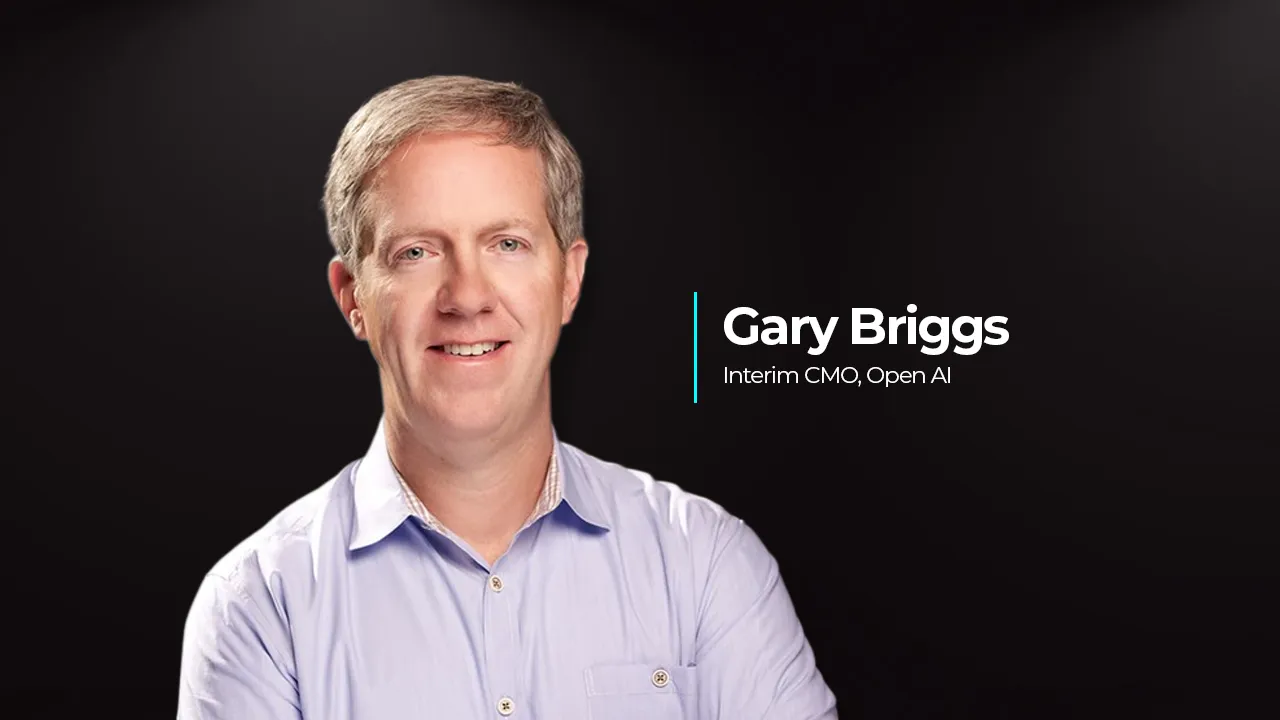OpenAI taps former Meta executive for interim marketing role amid leadership transition
OpenAI appoints former Meta CMO Gary Briggs as interim marketing head as Kate Rouch takes medical leave, showcasing modern transition management practices.

OpenAI has appointed Gary Briggs, the former chief marketing officer at Meta, as interim head of marketing following the medical leave of current CMO Kate Rouch, highlighting the artificial intelligence company's reliance on interim leadership during a critical growth phase.
The appointment underscores the increasing prevalence of fractional executive arrangements in the technology sector, where companies leverage experienced interim leaders to maintain operational continuity during unexpected transitions.
Strategic interim appointment
Rouch, who joined OpenAI in December 2024, announced her departure for medical treatment via LinkedIn, citing a diagnosis of invasive breast cancer that requires a three-month treatment programme. The timing presents particular challenges for OpenAI as it navigates intense competition in the generative AI market and seeks to expand its commercial footprint.
Briggs brings considerable experience in business transformation and digital marketing, having overseen Meta's marketing operations during a period of significant platform evolution and regulatory scrutiny. His appointment represents a calculated move by OpenAI to maintain marketing momentum without disrupting strategic initiatives.
"This exemplifies the modern approach to transition management where companies prioritise continuity over lengthy recruitment processes," said industry analysts. The decision to appoint an interim leader with existing relationships within the organisation reflects best practices in executive transition planning.
Operational continuity strategy
The professional relationship between Rouch and Briggs, established during their tenure at Meta, facilitates a smoother transition. Rouch previously held senior positions across Meta's portfolio including Facebook, Instagram, WhatsApp, and Messenger before serving as CMO at Coinbase prior to joining OpenAI.
This network-based approach to interim leadership appointments has become increasingly common in the technology sector, where rapid scaling and market volatility create frequent leadership transitions. Companies are recognising the value of maintaining institutional knowledge through established professional relationships.
OpenAI has indicated no immediate changes to its broader marketing strategy during the interim period, suggesting the company views this as a temporary operational adjustment rather than a strategic pivot. This approach aligns with contemporary transition management frameworks that emphasise maintaining strategic direction during leadership changes.
Market implications
The appointment comes as OpenAI faces intensifying competition from technology giants including Google, Microsoft, and Amazon in the artificial intelligence space. Maintaining consistent marketing leadership during this period is crucial for preserving market positioning and investor confidence.
The company's ability to quickly secure an experienced interim executive demonstrates the maturation of the fractional c-suite market, where senior executives increasingly accept temporary assignments to support growing companies during transitional periods.
Industry observers note that such arrangements provide mutual benefits: companies gain immediate access to proven expertise without lengthy recruitment processes, while executives can engage with innovative organisations on flexible terms.
Healthcare considerations in executive transitions
Rouch's public disclosure of her medical situation reflects evolving attitudes towards health-related executive transitions. Her decision to prioritise treatment while ensuring operational continuity through interim leadership demonstrates sophisticated transition management planning.
The case highlights the importance of succession planning that accounts for unexpected personal circumstances, particularly as organisations increasingly recognise the value of supporting employees through health challenges while maintaining business operations.
With one in eight American women facing invasive breast cancer diagnosis during their lifetime, according to medical statistics, companies are developing more robust frameworks for managing health-related executive transitions.
OpenAI's handling of this situation may serve as a template for other technology companies navigating similar circumstances, particularly as the industry grapples with burnout and health issues among senior executives.
The three-month timeframe provides sufficient duration for comprehensive treatment while maintaining a clear timeline for transition planning, reflecting best practices in temporary executive arrangements.

